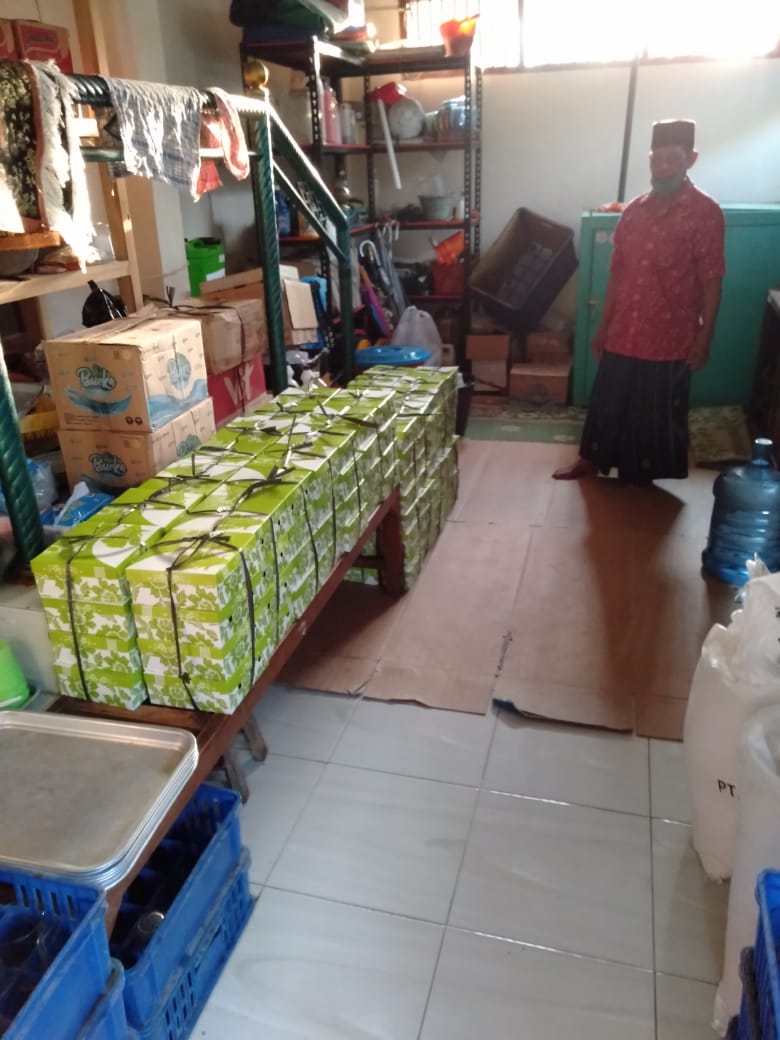
IN THE NAME OF ALLAH THE MOST GRACIOUS, THE MOST MERCIFUL
Ramadan is a month of Mercy and Forgiveness from Allah, and at the same time, it is the time to build our Taqwa and Iman, which will have to last for the next 11 months until we meet the next Ramadan inshaAllah. As human beings with so many faults and mistakes, many of us must rectify these shortcomings before we meet Allah. Therefore, we have to identify the various challenges that we will face BEFORE Ramadan so that we will be able to achieve the ultimate aim of Ramadan inshaAllah, which is:
THE VARIOUS CHALLENGES IN RAMADAN:
It is quite ironical that some people actually gained weight during Ramadan. The main reason is:
Food and drinks
In general, the hadith about how much food we should consume applies throughout the year, even during Iftar:
Ibn Umar reported: The Prophet, peace and blessings be upon him, said, “The unbeliever eats with seven intestines, and the believer eats with one intestine.”
Source: Ṣaḥīḥ al-Bukhārī 5079, Ṣaḥīḥ Muslim 2060
That means; a believer is satisfied with a little food, while an unbeliever or a hypocrite eats too much to satisfy himself.
The Prophet (Allah bless him and grant him peace) also said:
“The son of Adam does not fill any vessel worse than his stomach. It is sufficient for the son of Adam to eat a few morsels to keep him alive. If he must fill it, then one-third for his food, one-third for his drink, and one-third for air.” (al-Tirmidhi)
Abu Juhayfah said:
“A man burped in the presence of the Messenger of Allah (Allah bless him and grant him peace) and he said: “Keep your burps away from us, for the one who eats his fill the most in this world will be hungry for the longest time on the Day of Resurrection.” (al-Tabarani)
After hearing that Abu Juhayfah RA did not eat his fill until he departed from this world; if he ate breakfast he would not eat dinner and if he ate dinner he would not eat breakfast, and he said: “I have not filled my stomach for thirty years.”
Ibrahim ibn Adham said: “Anyone who controls his stomach is in control of his deen, and anyone who controls his hunger is in control of good behavior.. Disobedience towards Allah is nearest to a person who is satiated with a full stomach, and furthest away from a person who is hungry.”
The Ulama enumerate multiple benefits of eating in moderation. Eating less keeps the body healthy and light, keeps the heart soft, increases memory, weakens desires, and disciplines the soul while excessive eating brings about the opposite of these praiseworthy qualities.
In fact, too much food is one of the “poisons of the heart” that will make it difficult to purify the heart. The heart must be purified so that Allah’s Guidance will be able to penetrate the heart and cause us to change and be more obedient to Allah. The consumption of small amounts of food guarantees tenderness of the heart, strength of the intellect, humility of the self, weakness of desires, and gentleness of temperament. Immoderate eating brings about the opposite of these praiseworthy qualities.
Excessive eating induces many kinds of harm. It makes the body incline towards disobedience to Allah and makes worship and obedience seem laborious – such evils are bad enough in themselves. A full stomach and excessive eating have caused many a wrong action and inhibited much worship. Whoever safeguards against the evils of overfilling his stomach has prevented great evil.
It has been reported that when a group of young men from the Tribe of Israel were worshipping, and it was time for them to break their fast, a man stood up and said: “Do not eat too much, otherwise you will drink too much, and then you will end up sleeping too much, and then you will lose too much.”
Exercise
In terms of exercising, it is important to continue to go to gym for light workouts so that at the end of Ramadan, our body will be healthy and able to do more acts of worship, especially in the last 10 nights of Ramadan.
Sleep
It is important to have sufficient sleep so that we are able to achieve khushoo’ during our prayers, especially during the long Qiyam al layl payers, better known as the tarawih prayers. Always remember that a successful believer is one which is able to perform prayer with khushoo’: 23: 1-2
Many people are yawning during these tarawoh prayers. Power naps are important to refresh ourselves, so perhaps you may take a few minutes of nap after you come back from work. In addition, during the last 10 nights of Ramadan, you may like to take a few days off work in order to sleep more in the day, as you will spend almost all of the night hours worshipping Allah.
It is important that we identify our various shortcomings in order to maximise our rewards in Ramadan:
Mentally, many people are treating Ramadan like a ritual – a month of not eating and drinking in the day. We must actively:



